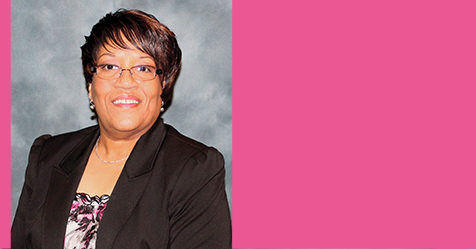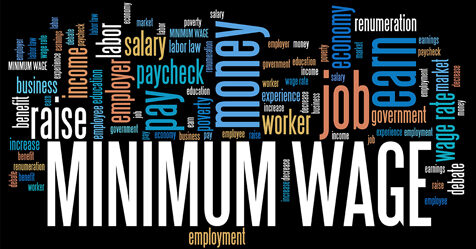One of the most complex and mission-critical responsibilities of cleaning management professionals in hospitality environments is employee scheduling. With 40 years of frontline experience in 48 countries, Margaret Walker-Shaw of The Venetian Resort in Las Vegas, NV, has crafted a recipe for success that embraces qualified metrics, comprehensive staff training, and a commitment to being nimble.
As the executive director of hotel operations, internal maintenance and vendor relations at the largest casino resort in the world, Walker-Shaw mobilizes an army of 1,500 housekeepers and 450 other cleaning professionals to make 17.9 million square feet of active space shine. Imagine: 7,092 guest suites in three towers, 6 million square feet of carpet, 165,000 square feet of marble, a 191,000 square foot casino with more than 2,000 slot machines and 240 table games, 2.25 million square feet of meeting space, plus theaters, restaurants, bars, lounges, a swimming pool deck, a parking garage, and more.
Do the Math
The first step in successful workforce scheduling is to know how many people you need to have on the job to get the work done properly. This requires an accurate understanding of: 1) the work that needs to be done, and 2) how much time is required to do it.
For Walker-Shaw, reliable time and motion studies are the foundation upon which her staff schedules are built. Not all assignments are created equal, obviously, so she has done due diligence to determine how much time is realistically required to properly clean each of the many different components in her scope of responsibilities.
The total number of individual tasks is divided by the total amount of time required to complete all tasks to yield a multiplier. This multiplier or equalizer is the key to calculating the weighted values known as workload credits that are assigned to each task and employee. In Walker-Shaw’s calculations, each workload credit requires about 35 to 40 minutes to complete.
Armed with this information, Walker-Shaw knows exactly how many workers she needs to schedule to successfully complete the work assigned to each shift.
This formula applies to public areas, as well. Walker-Shaw’s resort is organized into four zones of responsibility, and each zone comprises 16 designated areas known as stations, such as restrooms, stairwells, elevators, etc. Using data determined by time and motion studies for each station, Walker-Shaw determines her multipliers, assigns workload credits accordingly and uses this information to schedule the appropriate number of workers.
Of course, other known and unknown variables always need to be considered. Thousands of guests check out of their suites and leave the resort each day. If turnover is expected to be significantly different than this, schedules are adjusted. In a case like this, Walker-Shaw might reduce the number of assigned workload credits per worker. Other variables include regular deep cleanings that may be scheduled, unexpected problems that need immediate attention, and other ad hoc requests from guests or other hotel personnel.
To support this process, Walker-Shaw uses a workforce management software solution developed to handle the scheduling, time and attendance, and labor analysis for casino resorts. She also outsources a few select responsibilities. Enlisting experts to carefully clean the property’s 92 very delicate and expensive chandeliers is one example; another is to thoroughly clean draperies in place.
Always Have a Plan B (and C, D, E…)
Walker-Shaw can confirm the old saying, “life is what happens when you’re making other plans.” For a hundred different reasons, a schedule that looks good in theory may not always succeed in practice. Experience helps schedulers and managers plan for eventualities.
For example, not all scheduled workers report to work for a variety of reasons. To prepare for this, she schedules more workers than necessary (according to the formula) and calls upon a portion of her workforce that is designated exclusively for on-call/fill-in assignments. Like regular full-time team members, these on-call reservists are fully trained to meet Walker-Shaw’s high standards.
Another eventuality that is common in hospitality environments, especially casino resorts, is the unpredictability of access to guest suites. The majority of guest suites are cleaned during the first/daytime shift, but it’s not uncommon for guests who spend their nights gambling in the casino to have Do Not Disturb signs on their doorknobs well into the afternoons.
Experience has taught Walker-Shaw that this happens with quite a few suites per day. She prepares for this eventuality by not initially assigning about 300 of the first shift’s workload credits. When workers are about an hour away from ending their scheduled shifts and they have not been able to complete their assignments because guests are asking not to be disturbed, they contact their managers who give them new assignments from those that were held in reserve. The second/evening shift workers then become responsible for any remaining workload credits.
To successfully manage the many other unexpected challenges that present themselves, schedulers and managers need to flexible, their teams need to be nimble, and the organization needs to embrace a culture of cooperation, mutual respect and fair rewards. Managers rely on their knowledge of the property, cleaning standards and personnel to define priorities and make quick decisions and compromises. In the meantime, their teams increase in value exponentially when they’ve been cross trained to successfully perform in multiple areas, and when they (and their managers) are willing to lend others a hand.
Capable and Qualified
With proper tools and proper training, Walker-Shaw says “the buzzword is accountability.” Maintaining high standards and best practices is non-negotiable, and doing so requires a skilled and committed workforce. This makes training (including cross training) an important imperative for all housekeepers and other cleaning professionals at The Venetian Resort Las Vegas.
New employees serve 90-day introductory periods that begin with a week of comprehensive classroom training based on a detailed and fully illustrated training manual. In the second week, they shadow a tenured employee. Throughout the first 30 days, it’s understood that new employees are learning. After 60 days, employees are expected to be doing everything right, but probably not as quickly as fully-trained employees. By 90 days, employees should be able to achieve excellence within a reasonable timeframe.
The Venetian Resort is committed to attracting and retaining the best possible team members by investing in first-class training. In combination with qualified metrics and a nimble culture, it may be the most important ingredient in Walker-Shaw’s recipe for success.
Margaret Walker-Shaw has been an IEHA/ISSA member for more than 30 years. Read more about her fascinating career, wealth of knowledge and experience managing hotel housekeeping operations in 48 countries.




